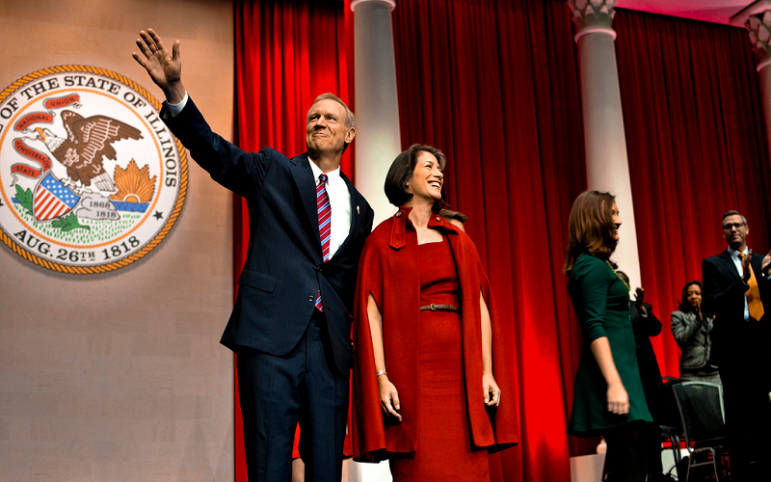
February 1, 2016; Washington Post
The recent passage of the Every Student Succeeds Act marked a return to local control of public education. At least, that’s what conventional wisdom has told us. But it seems many Republican governors and legislators have their own definitions of “local” that do not include struggling poor minority districts and cities. The Washington Post’s Lindsey Layton recently took a look at a growing effort by Republican-controlled states to move control to the state level.
Governors in Michigan, Arkansas, Nevada, Wisconsin, Georgia, Ohio and elsewhere—mostly Republican leaders who otherwise champion local control in their fights with the federal government—say they are intervening in cases of chronic academic or financial failure. They say they have a moral obligation to act when it is clear that local efforts haven’t led to improvement.
[…]
Eleven states have passed or debated legislation to create state-run school districts in the past year, according to the Education Commission of the States, which tracks state education policy. “There certainly is an effort afoot in the country to dismantle local government and reduce or eliminate the role of local school boards,” said Thomas Gentzel, executive director of the National School Boards Association.
In justifying state takeovers, the local school boards and the elected political leaders of the targeted systems get blamed for the poor financial condition and the weak educational program of their districts. State action is necessary because local officials are unable or unwilling to make the hard decisions needed to fix the serious problems affecting their students. Little recognition is given to the impact of a district’s shrinking tax base, the economic struggles of the communities served, or the declining funding provided by the state itself as key causes for the problems needing solutions.
In a proposal for a state takeover of Chicago’s public schools put forward last week, Illinois Governor Bruce Rauner explained his motivation, saying, “I want to protect the schoolchildren and their parents; that’s my first duty.” And Ohio governor and Republican presidential hopeful John Kasich described the state takeover of Youngstown’s schools as an 11th-hour attempt to save young lives. “If you’re a school district that’s failed year after year after year, someone’s going to come riding to the rescue of kids.”
Sign up for our free newsletters
Subscribe to NPQ's newsletters to have our top stories delivered directly to your inbox.
By signing up, you agree to our privacy policy and terms of use, and to receive messages from NPQ and our partners.
While the specific plans used by each state vary, the common denominator of state action is the replacement of local school boards and other local leadership with state-appointed officials who are not accountable to the local communities whose schools they are operating:
Although the particulars vary, an appointed manager wields broad powers to redesign schools or close them entirely. The state manager can hire and fire, set curriculum, reconfigure the school day, sell property and, in some cases, break existing labor contracts. Increasingly, state managers are turning over traditional public schools to charter school operators, which are funded by tax dollars but are privately managed. The idea is that the state can bring aggressive change in a way that local politicians, with their community ties and loyalties, cannot.
But because outcomes are strongly affected by the external forces proponents of state control ignore, state-run districts have not shown the promised dramatic improvement:
Takeovers in Newark [which has been ongoing for 20 years], Detroit [state run for 14 of the last 17 years] and Memphis [since 2011] have not improved test scores—in fact, some schools have gone backward.
Kent McQuire, president and chief executive of the Southern Education Foundation, which recently analyzed state takeovers in three states, “These ideas kind of travel like wildfire, but you can’t really find evidence that there’s been positive, sustainable changes in learning in those places.”
Proponents of state takeovers may have a larger agenda behind their concern for local school operations, as Philip Lanoue, 2015’s National Superintendent of the Year, believes. “These takeovers are entangled with money and power and control,” Lanoue says, probably thinking of Governor Nathan Deal, who wants to change Georgia’s constitution to enable state takeovers. Breaking the power of unions, making it easier to privatize public education by expanding charter schools, and deflecting attention from inadequate funding of local schools are key reasons Republicans want an end to local control.
And behind that agenda, one can perceive a marked insensitivity to race and class differences. Rev. Kenneth Simon, a Baptist pastor involved with the Youngstown schools that are among Gov. Kasich’s targets for a state takeover, described the threat he sees to his community: “They’re taking away the right of our own school board that we elected to govern. The school board has no power. The community has no say. I don’t know how African Americans could sit and let them roll the clock back like this.”—Martin Levine













